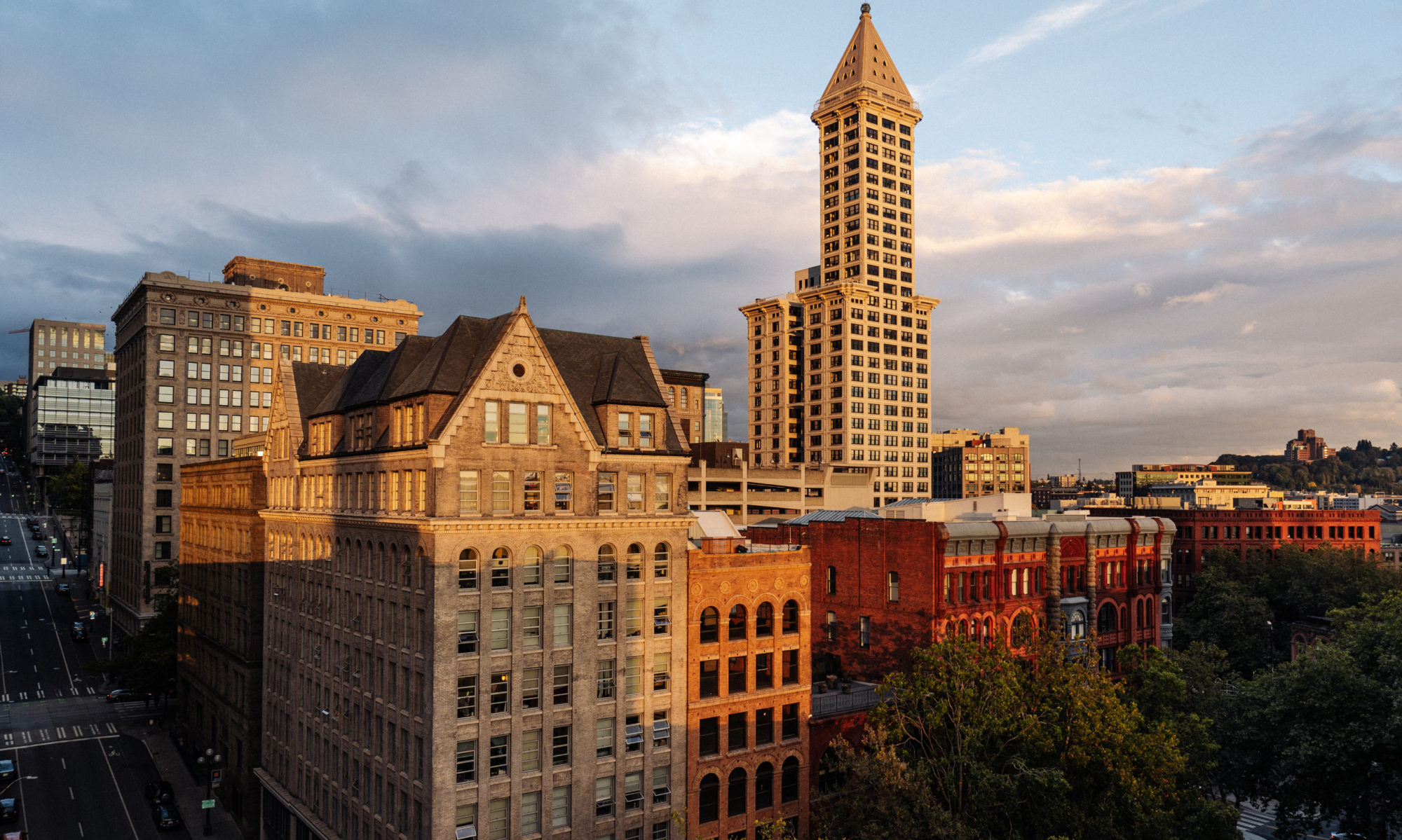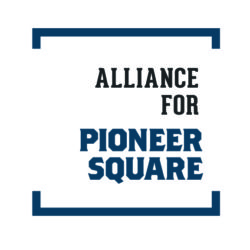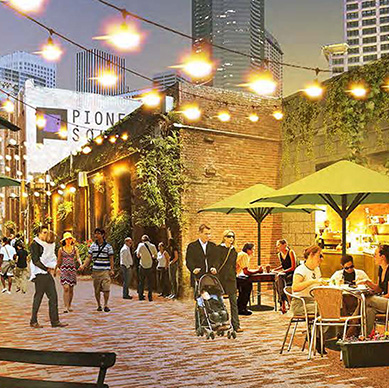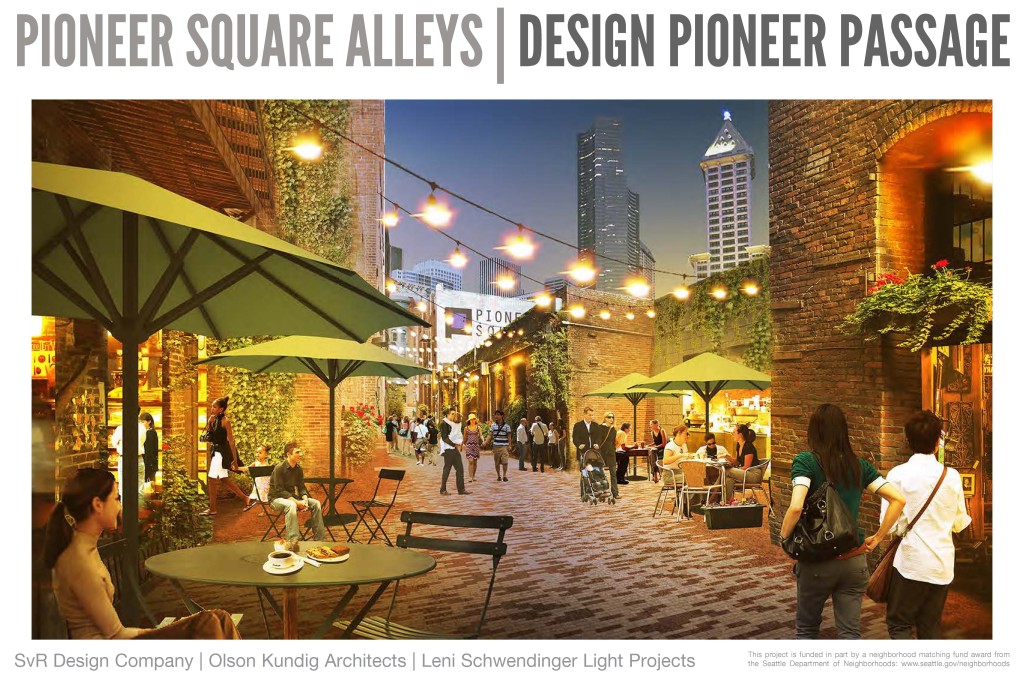The Preservation Green Lab figured out why we love Pioneer Square: Older, smaller neighborhoods are better! The Lab studied neighborhoods around the country. Among other discoveries they found:
1/ Older, smaller buildings provide space for a strong local economy
2/ Older business districts provide affordable, flexible space for entrepreneurs of all backgrounds
3/ The creative economy thrives in older mixed-use neighborhoods
4/ Young people love old buildings
Join us for a discussion on the Older, Smaller, Better report and how Pioneer Square is a model of the movement to save and reinvigorate historic buildings and neighborhoods. A panel discussion will occur on Monday, September 15, 6:00-7:30pm at the Foster White Gallery, 220 3rd Ave S, Seattle. It’s part of the Design in Public festival and is free and open to the public. Hosted by Feet First. Refreshments served.
Our Panel:
- Mark Hinshaw, FAIA, LMN Architects (Moderator)
- Michel Powe, Ph.D, Senior Research Manager, National Trust for Historic Preservation
- David Yeaworth, Deputy Director, Alliance for Pioneer Square
- Lisa Quinn, Executive Director, Feet First
Hope to see you there!
David Yeaworth
Deputy Director
Alliance for Pioneer Square




